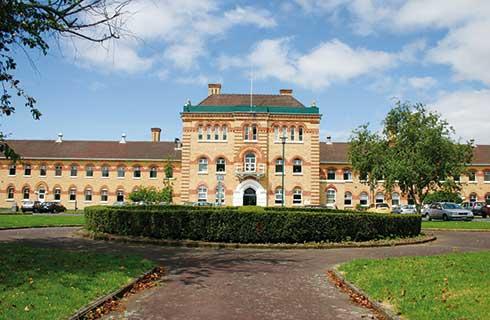- IDP China>
- 课程库>
- 自然科学>
- 自然资源与保护>
- 环境研究>
- Undergraduate Certificate in Environmental Stewardship of Indigenous Lands
Undergraduate Certificate in Environmental Stewardship of Indigenous Lands

学历文凭
Advanced Certificate

专业院系

开学时间

课程时长

课程学费

国际学生入学条件
You are required to submit complete transcripts from ALL secondary/high schools you have attended even if you did not graduate from the school.
Unofficial or Official transcripts can be submitted for admission consideration
Submit Test Scores
SAT or ACT scores are NOT required, however, submitting them can improve you chances of admission.
TOEFL iBT Overall Score 79 (Reading 8 Listening 7 Speaking 18 Writing 16)
IELTS ACADEMIC - 6.5 (Reading 5.5 Listening 5.5 Speaking 5.5 Writing 5.5)
IDP—雅思考试联合主办方

雅思考试总分
6.5
- 雅思总分:6.5
- 托福网考总分:79
- 托福笔试总分:160
- 其他语言考试:PTE ACADEMIC - 58 (Reading 42 Listening 42 Speaking 42 Writing 42)
CRICOS代码:
申请截止日期: 请与IDP联系 以获取详细信息。
课程简介
相关申请
 预科
预科 奖学金
奖学金 实习机会
实习机会 在校学习
在校学习 跨境学习
跨境学习 校园授课-线上开始
校园授课-线上开始 在线/远程学习
在线/远程学习
开学时间&学费
学费信息仅供参考,请与IDP联系以获取详细信息
| 开学时间 | 时长 | 学费 | 地点 |
|---|
学校排名

世界排名301
数据源:
泰晤士高等教育世界大学排名
关于科罗拉多大学丹佛分校

科罗拉多大学丹佛分校(科大丹佛分校)是一所顶尖的美国公立大学,为国际学生提供 150 多个本科和研究生学位。科罗拉多大学丹佛分校成立于 1973 年,校区位于丹佛市中心,为国际学生提供多元化的教育体验,帮助他们在未来的职业生涯中取得成功。科大丹佛分校是科大系统的一部分,科大系统还包括安舒茨医学校区,该校区位于丹佛以东几英里处的科罗拉多州第三大城市奥罗拉。来自 130 多个国家的国际学生在科大丹佛分校学习,并享受学校提供的一系列本科奖学金以及学术和职业支持服务。科大丹佛分校的英语作为第二语言(ESL)学院为国际学生在校期间提供定制支持。除了帮助学生掌握流利的英语外,ESL 学院还随时准备帮助学生在美国安顿下来、找到合适的住所并发展他们的专业技能。丹佛毗邻迷人的落基山脉,是一座文化多元、令人兴奋的城市,经济繁荣,拥有一系列世界一流的体育场馆、餐厅、咖啡馆和博物馆。丹佛每年有 300 天的日照时间,夏季气候舒适,冬季气候温和。科罗拉多州本身拥有 200 多个公园和国际知名的步道系统,供学生在闲暇时间游览。
本校相关课程
其他相关课程

环境研究文学士学位(4年)
 劳伦森大学
劳伦森大学学历文凭
Bachelor Degree
开学日期
课程费用总额


环境技术文凭
 卡莫森学院
卡莫森学院学历文凭
Bachelor Degree
开学日期
课程费用总额


土著环境科学理学学士
 特伦特大学
特伦特大学学历文凭
Bachelor Degree
开学日期
课程费用总额


土著环境研究文学士学位
 特伦特大学
特伦特大学学历文凭
Bachelor Degree
开学日期
课程费用总额


环境科学/研究学士
 特伦特大学
特伦特大学学历文凭
Bachelor Degree
开学日期
课程费用总额


环境监测与影响评估研究生证书
 凯布莱恩学院
凯布莱恩学院学历文凭
Graduate Certificate
开学日期
课程费用总额










 美国
美国




